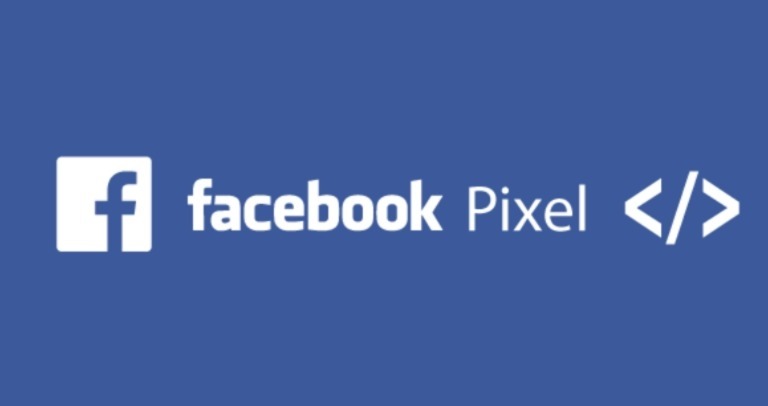
- 1. What is Pixel Facebook?
- 2. Benefits
- 2.1. Optimize & have a better strategy for advertising campaigns
- 2.2. Create object files that support retarget
- 2.3. Scale the campaign effectively
- 2.4. Use Facebook conversion tracking
- 2.5. Use Facebook targeting
- 2.6. Create a lookalike customer
- 2.7. Optimize Facebook ads to convert
- 2.8. Optimize Facebook ads for value
- 2.9. Has access to many Facebook advertising tools and metrics
- 3. How to use Facebook pixels
What is Pixel Facebook?
![]()
Pixel Facebook is the code that you put on your website. It collects data to help you track conversions from Facebook ads, optimize ads, build a targeted audience for future ads, and remarketing to people who have taken some action. on your website.
It works by setting and enabling cookies to track users as they interact with your website and Facebook ads. There used to be a few different types of pixels: the Facebook conversion pixel and the Facebook custom object pixel.
Facebook Pixel is a tool deployed by Facebook to provide powerful support for advertisers to maximize their campaigns' effectiveness.
By creating & installing pixels on your website, setting up the desired tracking, you can easily optimize your advertising campaigns to reach the right customers & increase conversion rates.
The article will help you clearly visualize how Facebook Pixel & AZ works to note.
From there, it helps you to specifically track the traffic to your website for future promotion.
Benefits
![]()
Optimize & have a better strategy for advertising campaigns
By recording & tracking the behavior of website traffic, pixels will help you make better decisions about your potential customers.
With the development of increasingly intelligent Machine Learning ( Robotics ) from Facebook, the pixel is helping Facebook direct tools to better understand the potential audience file that you aim to give a specific website.
For example, the website & the item you sell is women's office fashion.
The pixel attached to the website selling this item will increasingly understand the target audience file, thereby helping the advertising reach better to women who are working at work.
Create object files that support retarget
Custom Audience (custom objects) is a feature coolest of pixels, allowing you to create each file specific audiences to target advertising to them, helping to increase the conversion rate from 30% - 50% is workable.
For example, let's say you are running an ad to a page that sells women's flare dresses. There are many visitors to the product page, click add to cart, but have not paid yet.
At this point, you can run your ads to a file of visitors who behave like this, with "more attractive" calls , like offering them a 10% discount coupon or a good deal.
Retarget with custom file object is always a strategy can not be ignored in order to maximize sales conversion rates.
Scale the campaign effectively
With winning campaigns, it's easy to replicate your campaign with the Lookalike Audience feature , with the purchase audience file captured in pixels.
You replicate to other camps with an audience file that have the same buying leads as pixel-recorded buyers.
This is one of the top ways to scale effectively among global sellers or online shop owners in Vietnam who are doing to replicate the number of orders in a short time.
How can you use pixel Facebook? These are just a few of the ways pixels can help improve your Facebook marketing results.
Use Facebook conversion tracking
Pixel Facebook allows you to see how people interact with your website after viewing your Facebook ads.
You can even track customers on their devices. This allows you to see if people tend to see your ad on mobile devices but switch to desktop before buying. This information can help you refine your advertising strategy and calculate your return on investment.
Use Facebook targeting
Facebook's retargeting pixel data and dynamic ads allow you to show targeted ads to people who have visited your website. You can choose to get really detailed here. For example, you can show people an ad for the exact product they dropped in their shopping cart or added to a wish list on your website.
Create a lookalike customer
Facebook can use your targeting data to help you build audiences with similar interests, interests, and demographics to people who have interacted with your site. This can help expand your lead customer base.
Optimize Facebook ads to convert
You can use Facebook's tracking pixel data to optimize Facebook ads for specific conversion events on your website. Without pixels, the only conversion you can optimize for is the link clicks. With pixels, you can optimize for conversions that more closely align with business goals, like purchases and subscriptions.
Optimize Facebook ads for value
When Facebook collects data about the buyers from your website and how much they spend, it can help optimize your ad audience based on value. That means it will automatically show your ads to people most likely to make a value purchase.
Has access to many Facebook advertising tools and metrics
Want to use web conversion campaigns, custom audiences from your website or dynamic ads? You can only do so if you have the Facebook pixel installed. You also need pixels to track metrics like cost per lead or cost per conversion.
How to use Facebook pixels
You can use the Facebook pixel to collect data about two different types of events.
- Facebook has predefined a set of 17 standard events.
- You can set up custom events yourself.
A named event is simply a specified action a visitor performs on your website, like a purchase.
The Facebook pixel standard event
The 17 standard Facebook pixel events for which you can simply copy and paste the standard Facebook event code are:
- Purchase: Someone completes a purchase on your website.
- Leads: Someone signed up for a trial or claimed to be a lead on your website.
- Registration completed: Someone completes a registration form on your website, such as an application form.
- Add payment info: Someone enters their billing information during the purchase process on your website.
- Add to cart: Someone adds a product to their cart on your website.
- Add to wish list: Someone adds a product to wish list on your website.
- Begin a checkout: Someone initiates the checkout process to buy something from your website.
- Search: Someone uses the search function to find something on your website.
- Content view: Someone landed on a specific page on your website.
- Contact: Someone contacted your business.
- Product customization: Someone chooses a specific version of the product, such as choosing a certain color.
- Donation: Someone donates to your career.
- Location search: Someone searches for the physical location of your business.
- Schedule: Someone book an appointment at your business.
- Get started trialing: Someone signs up for a free trial of your product.
- Submit an application: Someone applies for your product, service, or program, such as a credit card.
- Subscribe: Someone subscribes to a paid product or service.
You can also add more details to the standard events using additional code bits called parameters. This allows you to customize standard events based on:
- How much is a conversion event worth
- Currency
- Content type or ID
- Cart content
For example, you can use Facebook pixel tracking to record views of a specific category on your website, instead of tracking all views. Perhaps you want to separate dog owners from cat owners based on the sections of your pet offering website they've visited.
Custom events Facebook Pixel
You can use custom events in place of standard events, or to gather more details than Facebook's pixel standard events can provide.
Custom events use URL rules based on URLS or specific URL keywords.
How to create Facebook pixels and add them to your website
Previously, the tracking code provided by Facebook to advertisers would consist of 2 types:
- Conversion event codes: help record purchases, page views, search, complete registration, checkout page checkout ... etc ...
- Code to create custom objects
However, due to the trouble of using two types of code, Facebook has now gathered them into a single Facebook Pixel type and set it up into two different use cases depending on the purpose of advertisers.
In case 1, "Tracking Website Conversion" is used to track and record the conversion events that take place on the website.
Specifically, 9 actions (Standard Events) that Pixel Facebook can track are:
- Content view: Track main page views (article, landing page, product page)
- Search: Track your website searches (product search)
- Add to cart: Track when items are added to the cart
- Add to favorites: Follow up when items are added to favorites list
- Begin payments: Track when people enter your payment stream
- Add payment info: Track when people added payment info in the payment flow
- Purchases: Track purchases or complete checkout flows (go to purchase confirmation page)
- Lead: Track when someone becomes a lead (submit a form, sign up for a trial)
- Complete registration: Track when someone completes a signup form (complete registration, service signup)


